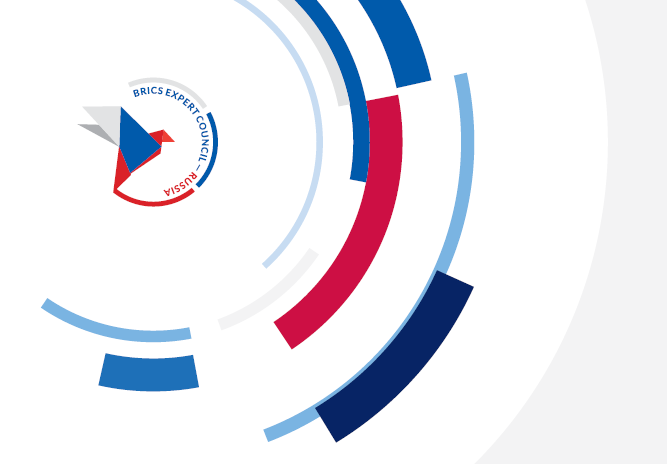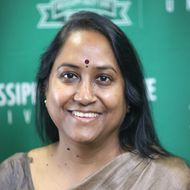Experts Assess How BRICS Countries’ Education Systems Are Evolving

The BRICS Expert Council–Russia, based at HSE University and operating in collaboration with the HSE Institute of Education, has released an analytical report titled ‘The Transformation of General Education in BRICS Countries.’ The study explores how BRICS nations are addressing shared challenges, including equitable access to schooling, digital integration, support for inclusion, linguistic diversity, and intercultural dialogue.
Education is recognised as a key driver of sustainable development, social equity, and technological progress. In the context of global transformation, education is increasingly seen as a tool for shaping the future. It is therefore vital to understand how national education systems are being shaped in countries with different historical and cultural backgrounds, yet comparable scale and aspirations. This is particularly relevant for the BRICS group—Brazil, Russia, India, China and South Africa—whose influence on the global education agenda continues to grow.
The report, prepared jointly by the BRICS Expert Council–Russia and the HSE Institute of Education, reveals how BRICS countries are taking distinct approaches to common challenges—from equalising access to school education and integrating digital technologies to addressing teacher shortages and promoting inclusion, linguistic diversity, and intercultural dialogue. It also touches on the sustainability of educational infrastructure and the evolving role of schools in fostering social cohesion.
Special attention is paid to how each country defines its strategic priorities without simply replicating external models. For example, India seeks a balance between modern labour market demands and the traditions of Vedic knowledge. South Africa’s education policy aims to overcome the legacy of segregation; meanwhile, Brazil focuses on embracing diversity as a core value. China and Russia concentrate on improving the quality and accessibility of education in remote areas.
The report underscores that BRICS education systems are advancing not in spite of their differences, but because of them. Diversity is seen not as a barrier but as a driver of growth—a foundation for developing flexible, resilient, and equitable models of education. This experience can offer valuable insights not only to BRICS members, but also to a wide range of countries seeking to rethink their approaches to schooling in light of social, cultural, and institutional realities.

BRICS education systems collectively account for roughly one-third of the global educational landscape. The accompanying infographic presents the scale and structure of school education in BRICS countries. The visual material is descriptive rather than comparative, focusing on two key dimensions:
1. The socio-economic and demographic context of each country
2. The structure of their national education systems
The presented data highlights both the diversity within the BRICS education systems and the common foundations that allow for experience sharing and idea exchange. This, in turn, helps address the mutual challenges these countries face in reforming school education.

Victoria Panova
‘The report explores the unique characteristics of the BRICS education systems,’ noted Victoria Panova, HSE Vice Rector, Head of the BRICS Expert Council–Russia. ‘Comprehensive, in-depth studies like this help us find solutions to pressing issues, promote knowledge exchange, and develop partnerships in the field of education. It is in this sphere that the diversity of BRICS countries becomes a major competitive advantage. BRICS has the potential to consolidate pioneering ideas, policy approaches, and educational experience from countries that together represent the global majority.’

Ivan Ivanov
‘This report is the first international study on the state and development of general education systems across the BRICS countries,’ explained Ivan Ivanov, Director of the Pinsky Centre of General and Extracurricular Education. ‘It emphasises the need for education policy to be adapted to local contexts while also supporting the advancement of inclusive schooling. BRICS countries play a vital role in global education and share key characteristics shaped by their distinct socio-economic and cultural conditions.’

Liesel Ebersöhn
‘Involving scholars from across the BRICS nations was key to the success of this study,’ said Liesel Ebersöhn, Director of the Centre for the Study of Resilience at the University of Pretoria. ‘The report offers compelling evidence that each country can respond to major global trends in ways that ensure positive learning and wellbeing. The contextual and cultural perspectives presented in the report demonstrate how meaningful educational practices can be developed in similar emerging economies, as well as in low- and middle-income countries.’

Vandana Saxena
‘Diversity is a defining feature of BRICS countries,’ stated Vandana Saxena, Professor at the University of Delhi (India). ‘This is reflected in national education policies and systemic efforts to expand opportunities for all citizens. Major challenges for education systems—and at the same time sources of potential—include territorial diversity, uneven population distribution, rural–urban disparities, and cultural traditions. Yet, as this study shows, governments and education systems in each BRICS country recognise the transformative power of education and are actively working to improve quality, while critically engaging with the need to support linguistic, ethnic, and religious diversity, and their intersections with gender, class, and disability.’
See also:
‘Artificial Intelligence Has Become the Lifeblood of the Global Economy’
Experts from HSE University took part in the BRICS Academic Forum (FABRICS) held in the capital of Brazil this year. The main theme of the event was to discuss cooperation among countries in the Global South amid geopolitical turbulence and rapid technological change. Academics and experts from BRICS member states and partner nations explored topics such as global healthcare, AI technologies, trade, climate change, and reform of the multilateral global security and governance architecture.
Roundtable on Russia–China Cooperation in Antimonopoly Policy Held at HSE University
HSE University hosted a roundtable titled ‘New Challenges for Antitrust Regulation: The Chinese Perspective.’ The event was organised by the International BRICS Competition Law and Policy Centre (BRICS Centre). Special guests included Chinese colleagues from the Competition Policy and Assessment Centre (CPAC) of the State Administration for Market Regulation of the People’s Republic of China (SAMR). Last year, the BRICS Centre and CPAC SAMR signed an agreement on strategic cooperation.
‘The Trip Exceeded All Our Expectations’: HSE Students Take Part in BRICS Youth Innovation Summit 2025
The BRICS Youth Innovation Summit 2025 was held in Cape Town on April 10–11, 2025. The event was attended by political and business leaders from Brazil, Russia, India, China, and South Africa. The summit focused on the theme ‘Innovating the Future: Technology for Sustainability and Social Good,’ under which the participants presented their projects. Students of the Faculty of Economic Sciences have shared their experiences of the trip to South Africa, their presentations at the BRICS summit, penguin encounters, and more!
HSE’s Education Observatory Establishes Research Network Across All BRICS Countries
The International Education Observatory initiative, launched by HSE University to focus on expert evaluation, analytics, and joint scientific research, has successfully completed the formation of a research network across all BRICS nations. South Africa was the final link, with the University of Pretoria and the University of the Witwatersrand joining experts from Russia, China, India, and Brazil.
The Future Through the Eyes of Young Scientists
A delegation of teachers and students from the HSE Campus in Nizhny Novgorod participated in the IV Young Scientists Congress and the IX BRICS Young Scientists Forum held in Sochi. These two key events of the Russian Decade of Science and Technology brought together representatives of the academic and university community, state corporations, private businesses, and public organisations to envision the future of Russian science through the lens of the younger generation.
‘We Need Our Own AI Models Trained on Local Data’
The digitalisation of the economy and the rapid development of artificial intelligence (AI) technologies pose new challenges for antitrust authorities worldwide. Major players in the AI market, equipped with significant resources, can block new entrants and set anti-competitive prices. Additionally, the use of AI raises increasingly complex ethical questions for which the global community has yet to develop answers. These and other issues were discussed at the Third BRICS+ Digital Competition Forum.
‘It Is Hard to Imagine High-Level Interpretation Being Entrusted to a Machine’
In 2024, Russia chairs BRICS, an international organisation comprising nine countries. Throughout the year, dozens of forums, working group meetings, and BRICS sessions took place across various Russian cities. As an interpreter, Ksenia Prosyukova, Associate Professor at the HSE School of Foreign Languages and Candidate of Science (PhD) in Pedagogy, participated in several BRICS events. In an interview, she discussed the personal responsibility of working at high-level events, the challenges and prospects of her profession, and how HSE University trains in-demand translators.
BRICS Representatives Discuss the Development of Statistics in Member Countries
The significance of statistics in today’s digital age has reached a new level. Many decisions at government and business levels are based on data analysis. However, there is a mixed perception of official statistics, which negatively affects trust in public policies. The heads of BRICS statistical agencies discussed this issue and ways to address it at a forum in Kazan, where a representative from HSE University also participated in the event.
‘Geographical Distance No Longer a Problem’: ISSEK Fosters Cooperation with Think Tanks in BRICS Countries
In September, the HSE Institute for Statistical Studies and Economics of Knowledge hosted an international working meeting with representatives from Brazilian, Egyptian, and Indian think tanks. The participants discussed opportunities for cooperation, including joint surveys, comparative studies, databases, and publications on foresight, technology, and innovation. It was also decided to draft a multilateral agreement to establish the BRICS Foresight Association.
HSE Experts Take Part in the First International Workshop on Technological Sustainability of BRICS
On September 19–20, Skoltech hosted the First International Workshop on Technological Sustainability of BRICS: University-Industry Partnerships, organised jointly with HSE University Human Capital Multidisciplinary Research Center. The meeting was held as part of the BRICS working group on technology foresight and science and technology studies.


